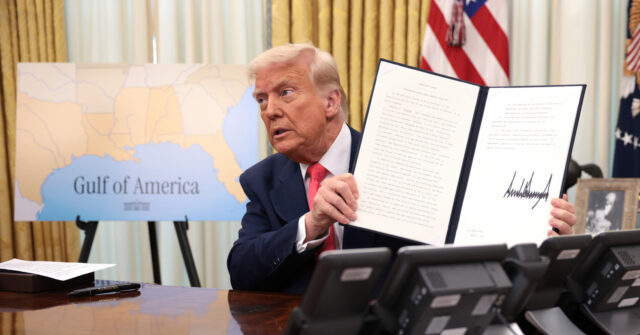President Trump Pauses Tariffs on Canada and Mexico Under USMCA, Offering Temporary Relief
President Donald Trump has announced a temporary pause on tariffs for Canadian and Mexican goods that comply with the U.S.-Mexico-Canada Agreement (USMCA), offering a reprieve to two of America’s most significant trading partners. This decision comes after Trump had initially imposed a 25% duty on imports from both countries earlier in the week. The revised policy, effective until April 2, aims to encourage North American production while ensuring compliance with trade commitments. This move is part of a broader strategy to rebalance global trade relationships and reduce the U.S. trade deficit. The temporary exemption is designed to incentivize cooperation and compliance with U.S. trade priorities, particularly in areas such as border security and combating fentanyl trafficking.
A reprieve grounded in growing cooperation and trade strategy
The decision to modify the tariffs followed extensive discussions between Trump and Mexican President Claudia Sheinbaum, as well as Canadian Prime Minister Justin Trudeau. The White House emphasized that the pause reflects increased collaboration from both countries on key issues such as border security and fentanyl trafficking—critical priorities for the Trump administration. In remarks from the Oval Office, Trump noted, “They’ve been working much harder lately, do you notice that? On people coming in and drugs.” Commerce Secretary Howard Lutnick echoed this sentiment, highlighting the progress made by Mexico and Canada in addressing fentanyl trafficking. The administration appears to view this tariff pause as a carrot-and-stick approach, rewarding cooperation while setting the stage for stricter enforcement in the future.
The temporary tariff reprieve applies to automobiles and auto parts that meet USMCA requirements. This decision was made after intense lobbying by Detroit’s Big Three automakers—Ford, GM, and Stellantis—who argued that the tariffs would increase production costs and threaten jobs. Trump, however, made it clear that the exemption is temporary and should not be seen as a permanent solution. “I told them that’s it, this is a short-term deal,” he said, signaling that further extensions are unlikely. While the auto industry has received some relief, other industries remain affected. For instance, energy products from Canada will face a 10% tariff, and non-compliant imports from both countries will still be subject to tariffs. The White House has also clarified that tariffs already paid will not be refunded.
Reactions and reasons behind the tariff delay
While some media outlets have framed the tariff delay as a response to market volatility, Trump has dismissed this notion outright. “No, nothing to do with the market. I’m not even looking at them… long term, the United States will be very strong with what’s happening here,” he said in response to questions from reporters. This statement underscores Trump’s focus on long-term trade policy rather than short-term market fluctuations. The president’s announcement of the tariff delay on Truth Social highlighted his personal involvement in the decision, particularly with Mexico. “After speaking with President Claudia Sheinbaum of Mexico, I have agreed that Mexico will not be required to pay tariffs on anything that falls under the USMCA Agreement. This agreement is until April 2nd,” he wrote, noting that the exemption was granted “out of respect” for Sheinbaum. Notably absent from the post was any mention of Canada, leaving some to wonder about the future of U.S.-Canada trade relations.
Broader implications and future trade strategy
The temporary tariff reprieve is set to expire on April 2, when the Trump administration plans to unveil a sweeping new trade strategy. This strategy will include worldwide reciprocal tariffs targeting countries that impose tariffs and non-tariff barriers on U.S. goods. The goal is to reduce America’s trade deficit and pressure other nations to lower their trade barriers. Trump has long argued that U.S. trade partners disproportionately benefit from American economic strength and has made tariffs a key tool in his efforts to rebalance global trade relationships. Treasury Secretary Scott Bessent, speaking at the Economic Club of New York, underscored the administration’s vision for trade policy. “Access to cheap goods is not the essence of the American Dream,” he said, emphasizing the importance of fair and reciprocal trade.
A delicate balance between cooperation and enforcement
The decision to pause tariffs on Canada and Mexico under the USMCA reflects the administration’s efforts to strike a balance between cooperation and enforcement in its trade strategy. While the temporary reprieve acknowledges the progress made by both countries on key issues, it also serves as a reminder of the potential consequences of non-compliance. The exemption for auto parts and vehicles highlights the administration’s awareness of the interconnected nature of the North American supply chain and the need to protect American jobs and industries. However, the fact that other sectors remain subject to tariffs underscores the complexity of U.S. trade policy and the challenges of addressing the diverse needs of different industries.
Conclusion: A new chapter in U.S. trade relations
President Trump’s decision to pause tariffs on Canada and Mexico under the USMCA marks a significant moment in his administration’s trade agenda. The move reflects a blend of diplomacy, economic strategy, and domestic political considerations. While the temporary reprieve offers some relief to industries and trading partners, it also sets the stage for a more aggressive approach to global trade in the coming months. As the April 2 deadline approaches, all eyes will be on the administration’s next steps and how they will shape the future of U.S. trade relations with the world. For now, the pause on tariffs serves as a reminder of the delicate balance between cooperation and enforcement in the pursuit of fair and reciprocal trade.


